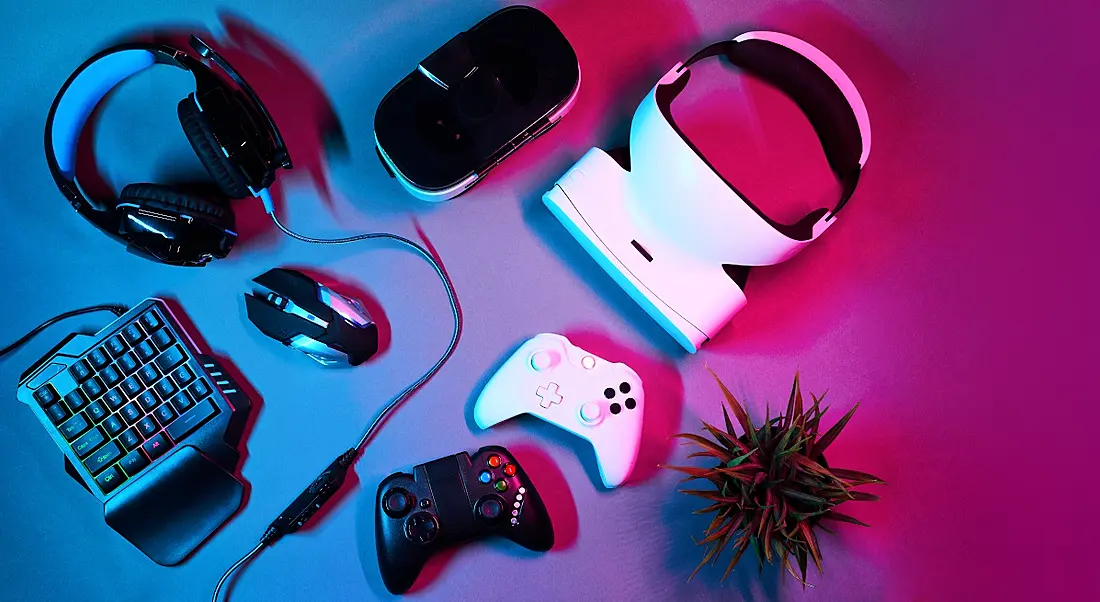Black Shamrock’s Ariana Jez discusses the culture within the gaming industry and how it can become a better workplace for women.
Working in gaming can be an incredibly rewarding careers and even a dream come true for seasoned gamers.
However, while it may sound like a dream job for many, the gaming industry is also plagued with controversy from its notorious ‘crunch time’ to gender inequality.
Most recently, gaming giant Activision Blizzard is facing serious allegations of sexism and harassment.
This is not a once-off situation either. Riot Games has suffered its own grim timeline of gender discrimination with multiple executives accused of sexism and harassment, while game streaming service Twitch was forced to permanently suspend streamers in response to sexual assault allegations.
But is all this controversy actually forcing change within the industry? What is it like for women working in the gaming sector at the moment?
Ariana Jez is a producer at Virtuos-owned video game development company Black Shamrock, which is based in Dublin. Virtuos is headquartered in Singapore with studios in Asia, Europe and the US. Over the course of her career, she has worked on multiple AAA games such as Call of Duty, Destiny 2, and Resident Evil.
Image: Ariana Jez
Along with seven years of experience working in the gaming industry, Jez is also a Women in Games ambassador, aiming to make the industry more inclusive and safer for women.
While there is still much work to be done to combat the toxic culture within gaming, Jez also said it’s important to stop looking at the whole industry as a boys’ club and focus on the major part that women play.
“Statistically, there is only a small gap between the proportion of male and female gamers, and the number of women playing games is still increasing,” she told Siliconrepublic.com.
“I hope that soon we will see more women in the gaming sector, as creating fantastic experiences for players is not gender specific. One of the key steps to achieving that is education from the early stages and challenging the stereotypes of girls being less skilled in science, technology, engineering and mathematics (STEM) fields.”
While Jez said she considers herself lucky based on her experience working in gaming, she said there is a fair share of areas that need to be improved upon.
“It is important to move beyond the awareness stage and look into how challenges can be addressed. One area that is close to my heart revolves around inclusion. We need to remember that games are being created by people – of different genders, race, sexual orientations, and more – who deserve equal rights and respect,” she said.
“Driving such a systemic change takes time, and I believe active participation is key to bringing about the improvements we’d all like to see.”
Addressing the problems
When it comes to dismantling the toxic culture in any industry, it needs to be done at every level. For gaming, Jez said that means more diverse representation within the games themselves as well as the presence of a more diverse workforce within the indudustry.
“For there to be a level-playing field, women in the industry should not be treated preferentially but equally, with the same amount of respect and recognition that’s based on merit, rather than gender,” she said.
“It’s not only about the starting point in the industry, but also equal promotion chances and putting a stop to assumptions that a potential pregnancy or childcare needs are stumbling blocks to successful careers. Inclusion at work is not about preferential treatment, but rather removing barriers and providing a safe environment that allows people to thrive.”
Outside of career progression, addressing the wider cultural problems that have hit headlines in recent years will take a little more leadership than simply hiring more women, people of colour and LGBTQ+ people.
“Companies can foster a sense of empathy, understanding and openness among its employees through education and training,” said Jez.
“Introspection is also equally important. Companies need to be open to feedback and be more transparent about their culture. At the same time, industry bodies and non-profit organisations need to conduct regular check-ins to see if measures aimed at enhancing diversity are actually being taken. Through constant advocacy, partnership, support and mentorship, we can pave the way to a brighter and more inclusive future.”
For women looking to work in the gaming industry, Jez said it’s important to remember that while every industry can have problems, you’re not alone.
“Find your community, come together, share your stories and empower each other to further your careers. Do not be afraid to speak up if something is bothering you. Continue to advocate for yourself, stand up for others and produce your best work possible.”
Updated, 11.22am, 6 September 2021: This article was amended to clarify that Black Shamrock is owned by Virtuos, which is headquartered in Singapore with studios in Asia, Europe and the US.




